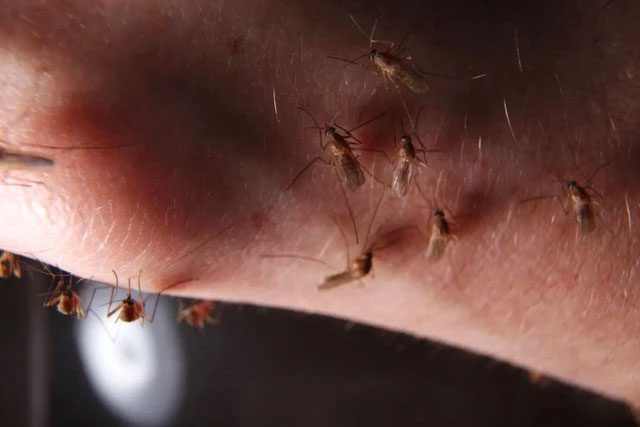The belief that air conditioning can repel mosquitoes and prevent dengue fever is not as ideal as we think.
We all know that mosquitoes thrive and reproduce best in humid, warm environments…
With the dengue fever outbreak spreading rapidly at this time, the fear of mosquito bites has become more daunting than ever. Meanwhile, some people believe that mosquitoes prefer warm and humid conditions and do not appear in air-conditioned rooms.
This raises the question: Is it safe to sleep in an air-conditioned room?
Does air conditioning repel mosquitoes: True or False?
To keep mosquitoes away, many people share the advice to switch the air conditioner from Cool mode to Dry mode – as the drier the air, the more uncomfortable mosquitoes feel and they will want to leave immediately.
Mosquitoes typically grow and develop rapidly in damp environments, especially in swamps, ponds, or stagnant water. Therefore, many believe that when using air conditioning, the humidity in the room decreases, making it less favorable for mosquitoes, who will find their way out as soon as we open a door or window.
However, air conditioning experts state that using the Dry mode to repel mosquitoes, as many people claim, is incorrect. The environment created by the air conditioner in this mode is not ideal enough to repel mosquitoes or make them uncomfortable enough to find an exit.
Even if the air in the room is drier, mosquitoes will still enter, bite, or transmit diseases in an air-conditioned environment if the room is humid, dirty, or untidy.

Using the Dry mode to repel mosquitoes as many people claim is incorrect. (Illustrative image: The Age).
According to Dr. Than Manh Hung (Central Tropical Diseases Hospital), this belief is not accurate.
The mosquitoes that transmit dengue fever are Aedes mosquitoes, which thrive best at temperatures of 20-25 degrees Celsius. Additionally, mosquitoes typically live indoors and around homes, biting people during dusk and dawn. Therefore, sleeping with air conditioning does not help prevent the disease.
Instead, the public should clean their homes and surrounding areas, eliminate containers that can hold water where mosquitoes may breed, spray insecticides, and use mosquito nets…



















































